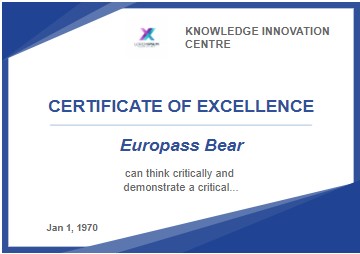Validation of non-formal and informal learning
The European Union supports actions to give visibility and value to skills acquired through non-formal or informal learning. Validation of skills allows people to be able to use the full range of their skills for their careers and further learning.
What is non-formal and informal learning?
People learn in multiple ways and in many different contexts outside of formal education and training structures. Skills development can follow as a by-product of their daily activities, even when learning was initially not been the primary goal or intention.
- Non-formal learning is normally structured learning (e.g. in-company training)
- Informal learning happens naturally as part of diverse activities (e.g. digital skills developed through leisure activities)
What is validation of non-formal and informal learning?
Skills developed through non-formal and informal learning can be a great advantage to people. But how to make these skills visible and valued?
A skills validation process allows individuals to identify, document, assess and certify their skills. Such a process may result in receiving a partial or complete qualification. This can increase their chances in the labour market and open up new professional opportunities. It can also give better access to further education and training and exemptions from certain parts of the training module or degree course.
Validation increases social inclusion and can empower people, including early school leavers, unemployed individuals, low-skilled adults and third-country nationals, by giving visibility to their skills.

What is the role of Member States and EU institutions?
The 2012 Recommendation on validation invites Member States to put in place national arrangements for validation by 2018. These arrangements should enable individuals to increase the visibility and value of their knowledge and skills acquired outside of formal education and training: at work, at home or through voluntary activities. The European Commission and the European Centre for the Development of Vocational Training (Cedefop) assist the Member States in this process.
The European Guidelines on validation provide policy and practical advice to policy-makers and stakeholders on implementing validation. Using good practice cases and thematic analyses, the European Inventory illustrates how validation is used at national, regional and local levels in Europe. The Guidelines and the Inventory support dialogue between all stakeholders in their continued efforts to develop validation in Europe.
Countries present one-off reports to the Europass Advisory Group on their policy response to the Recommendation. The reports discuss progress made as well as challenges faced.
The European Qualifications Framework (EQF) Advisory Group follows up on the implementation of the Council Recommendation. Minutes and meeting documents are available in the Register of Commission Expert Groups.




 Facebook
Facebook
 Twitter
Twitter
 Linkedin
Linkedin